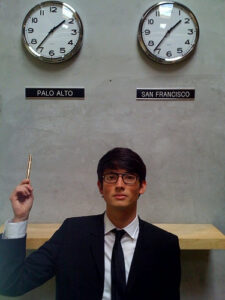I had the great pleasure of doing a webinar recently with Brad Palmer, the CEO of Jostle. We were talking about shifting your organizational culture from toxic to Humanized. For that webinar, I wrote up a definition of organizational culture, which is something I hadn’t done before.
Well, that’s not entirely true. We define culture in Humanize (the human elements we talk about show up simultaneously at three levels: culture, process, and behavior), but we don’t provide a single-sentence version. So here is a first draft:
Organizational culture is the collection of words, actions, thoughts, and “stuff” that clarifies and reinforces what a company truly values.
To explain, I’ll start with the last word: values. Culture is ultimately about what is valued. That can include flowery “values statements” if you like, but it always goes beyond that. Enron had nice statements in their lobby about things like integrity and honesty, but that wasn’t really valued at the end of the day, now was it? It turns out making your numbers look good at all costs was valued, so that’s what people did. Your culture is the collection of things that clarifies and reinforces what is really valued by the system.
And that means it’s complex. I listed four things that create it: words, actions, thoughts, and stuff. The first three are about the people. Culture is a complex combination of what we say it is, our behaviors, and the underlying assumptions and thinking behind it. As you might expect, those three areas are often inconsistent, so you have to piece together culture, recognizing you’ll find some contradictions. We’ll say we value customer service, but we’ll also say we value being strategic and long term. One is proactive and one is reactive, and to figure out where the culture really stands on that contradiction, you’ll have to assess several things at once. Additionally, you have to factor in the “stuff.” That just means the non-human parts of culture. Tangible things like office layout, office location, office decor, dress code, what types of computers you use…they also reflect what is valued.
There are more eloquent definitions out there, and there are definitions that either go deeper or broader, but I like this one because it facilitates action. Words, actions, thoughts, and stuff give you things you can work with. They give you areas where you can experiment and change and learn. And they keep the conversation about values moving, rather than stuck down a path that leads towards a boring new set of successories posters–but no improvement in performance.
The whole point of culture is to drive better performance. You need a definition of culture that is real, tangible, and understandable in order for that to work. I don’t care if you use my definition, but pick one and run with it.
[Update: this did end up as the definition I used in my Ebook on culture.]

